Joel Simon/CPJ Executive Director
Joel Simon was the executive director of the Committee to Protect Journalists from 2006 to 2021. His writing on media issues has appeared in The New York Times, The Washington Post, The Guardian. and The Wall Street Journal, and he is a regular columnist for Columbia Journalism Review. Under his leadership, CPJ was honored with the Thomas J. Dodd Prize in International Justice and Human Rights, a News & Documentary Emmy, and the 2018 Chatham House Prize. His book, The New Censorship: Inside the Global Battle for Media Freedom, was published in November 2014, while We Want to Negotiate: The Secret World of Kidnapping, Hostages, and Ransom was published in 2018. Follow him on Twitter @Joelcpj.
Combating impunity, from commitment to action
This afternoon we sent out a press release announcing a $100,000 grant from the John S. and James L. Knight Foundation to support CPJ’s Global Campaign Against Impunity. The campaign enters its third year in 2011, having achieved some significant successes, including high-level commitment to prosecute the killers of journalist in the Philippines and Russia.…
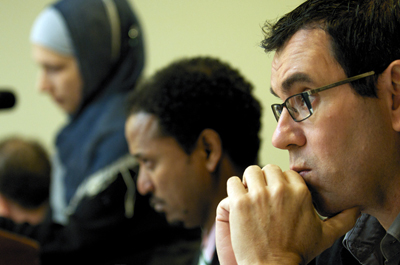
CPJ Press Freedom Awardee: ‘I always wanted answers’
The last few weeks have been extremely busy for everyone at CPJ as we’ve been preparing for the 2010 International Press Freedom Awards. Today’s press conference in Washington will be followed by a series of events culminating in our awards ceremony Tuesday in New York. As always, the awardees make it special.
Alfredo Corchado: ‘Trust No One’
On Monday, the Woodrow Wilson Center in Washington hosted a panel discussion on the press freedom crisis in Mexico. Carlos Lauría and I spoke about CPJ report “Silence or Death in the Mexican Press” and the results of our meeting in September with President Felipe Calderón. Dolía Estevez described the event in a blog she…
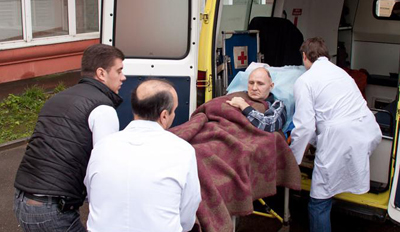
Help journalists in need: An appeal
Mikhail Beketov is lucky to be alive, although I’m sure there are days when he doesn’t think so. On November 13, 2008, the environmental reporter who campaigned against a highway that would have destroyed a forest in Khimki, a town outside Moscow, was beaten nearly to death by men with metal bars. The attackers made…
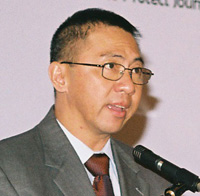
Remembering Philippine prosecutor Leo Dacera
Leo Dacera, a senior state prosecutor and head of the witness protection program for the Philippine Department of Justice, died suddenly on November 4. Initial news reports said Dacera, 54, left, was the victim of an apparent heart attack. Dacera’s untimely death is a tremendous blow to all those seeking to end the culture of…
Obiang prize suspended indefinitely
The Obiang prize, named for and funded by one of Africa’s most notorious dictators, was a very poor idea from the start and our goal, bluntly, was to kill it. We didn’t quite succeed in getting an outright cancellation, but the prize, while technically alive, is in a deep coma with virtually no chance of…
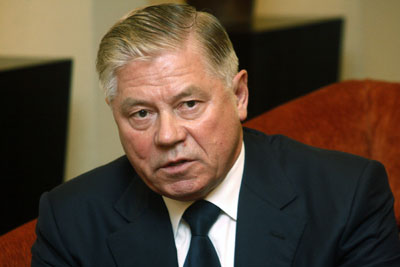
Mission Journal: A visit to Russia’s Supreme Court
At the end of our recent mission to Moscow, our delegation squeezed in one final official meeting. Vyacheslav M. Lebedev, the chief justice of Russia’s Supreme Court, had sent word only the night before that he would receive us. The meeting had been brokered by Aleksei Venediktov, the legendary founder of the radio station Ekho…
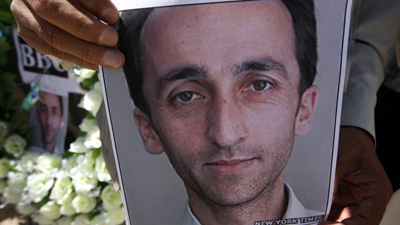
As with Norgrove, a need to probe Munadi death
This morning, Prime Minister David Cameron announced that British aid worker Linda Norgrove, who died in a rescue attempt after she was taken hostage in Afghanistan, may have been killed by a U.S. grenade rather than by her Taliban captors, as originally reported.
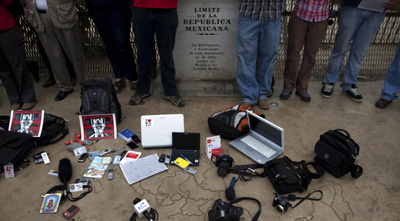
Mission Journal: Calderón sees a national threat
Mexican President Felipe Calderón Hinojosa had a message to deliver and it wasn’t about press freedom. After hearing the concerns presented by a joint delegation from CPJ and the Miami-based Inter American Press Association last week, the president wanted us to know something: He didn’t go looking for a fight against the drug cartels.

Attacks on the rise in India’s Orissa state
Everything, it seems, is growing in India. Bucking global trends, India’s media are expanding rapidly, reaching into the hinterlands following a wave of development and growing literacy. Industrial development is expanding, with explosive growth of mining and natural resource extraction. In Orissa state, historically poor and restive, these two trends are colliding, producing a spike in media…